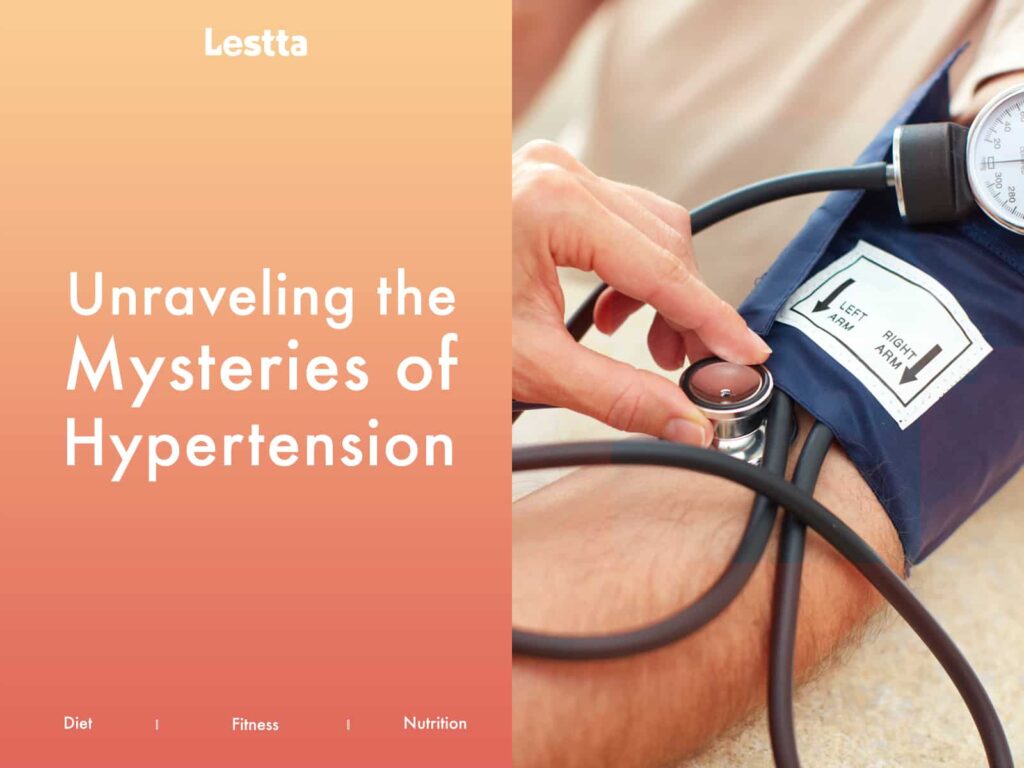
Hypertension, commonly known as high blood pressure, affects millions of people worldwide. Often referred to as the “silent killer,” hypertension quietly wreaks havoc on the body. In this article, we will delve into the mysteries of hypertension, shedding light on its causes, symptoms, and ways to manage it.
Understanding Hypertension
Hypertension occurs when the force of blood against the walls of the arteries is consistently too high. It is important to note that while hypertension itself may not cause noticeable symptoms, it can gradually damage vital organs such as the heart, brain, and kidneys, leading to severe health complications. That is why early detection and proactive management are crucial.
The Mysteries of Hypertension Unveiled:
- The Role of Lifestyle Factors: While the exact causes of hypertension remain unclear, several risk factors have been identified. Unhealthy lifestyle habits, such as a sedentary routine, poor diet, excessive salt intake, smoking, and alcohol consumption, contribute to the development of hypertension. Making positive changes to our lifestyle can significantly reduce the risk and progression of this condition.
- Genetic Predisposition: Family history and genetics play a role in the development of hypertension. Research suggests that certain genes may make individuals more susceptible to high blood pressure. By identifying genetic markers and understanding their implications, scientists hope to unravel the genetic mysteries surrounding hypertension, paving the way for more personalized treatment approaches.
- The Impact of Stress: Chronic stress and long-term exposure to stressful situations have been linked to hypertension. Stress triggers the release of hormones that constrict blood vessels and increase heart rate, elevating blood pressure. Learning effective stress management techniques and engaging in relaxation exercises can help manage hypertension and improve overall well-being.
Managing Hypertension
Fortunately, hypertension can be effectively managed through lifestyle modifications and, in some cases, with medication. Here are some strategies to help keep blood pressure in check:
- Adopting a Healthy Diet: Emphasize whole foods, fruits, vegetables, whole grains, lean proteins, and healthy fats while minimizing processed foods, saturated fats, and excessive salt intake. The DASH (Dietary Approaches to Stop Hypertension) diet has been particularly effective in lowering blood pressure.
- Regular Physical Activity: Engaging in regular exercise, such as brisk walking, swimming, or cycling, can help lower blood pressure. Aim for at least 150 minutes of moderate-intensity aerobic activity per week, along with strength training exercises.
- Managing Weight: Maintaining a healthy weight is crucial in managing hypertension. Shedding excess pounds through a balanced diet and regular exercise can have a significant impact on blood pressure levels.
Conclusion
Hypertension, the “silent killer,” poses a serious threat to our health. By understanding the mysteries surrounding this condition, we can take proactive steps to manage and prevent it. By adopting a healthy lifestyle, managing stress, and staying vigilant with regular check-ups, we can unravel the mysteries of hypertension and protect our long-term well-being.
Remember, knowledge is power. Stay informed, take control of your health, and work closely with healthcare professionals to keep your blood pressure in check. Together, we can demystify hypertension and lead healthier lives.









